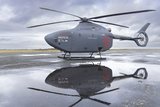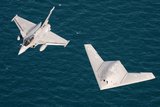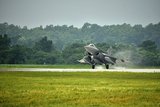Indonesia commits to Baykar Bayraktar TB2 UAS
The Bayraktar TB2 is in service with more than two dozen countries but mostly in small numbers. (Photo: Baykar)
Indonesia has committed to purchasing Baykar's Bayraktar TB2 medium-altitude long-endurance UAS, a system already operated by 27 countries. The system will operate alongside the CH-4 and Anka UAS.
The announcement was made by Indonesia’s Air Force Chief of Staff Marshal Mohammad Tonny Harjono who had visited the Baykar factory in Turkey in June.
The Anka was ordered by Indonesia in February 2023 under a US$300 million contract to acquire 12 Anka UAS from Turkish Aerospace Industries (TAI).
The Anka UAS are expected to be delivered before October 2025 and PT Dirgantara Indonesia will produce half a dozen platforms domestically as part of a technology transfer agreement.
In 2019, Indonesia ordered the CH-4 from China and now operates six platforms. The platforms can operate as strike assets and are also equipped with SATCOM data links and at least are configured for ELINT missions.
While details of the potential TB2 deal were not disclosed, Shephard Defence Insight estimates nine military off-the-shelf units could be acquired for the Indonesian military, a deal which would cost an estimated US$48.42 million.
Related Programmes in Defence Insight
Related Equipment in Defence Insight
More from Air Warfare
-
![Focus on economy over capability highlights the cost imperative for CCA success]()
Focus on economy over capability highlights the cost imperative for CCA success
Striking the right balance between cost and capability is likely to become more crucial in the increasingly competitive collaborative combat aircraft market. Shephard’s special CCA market report examines where the opportunities lie for suppliers.
-
![France and India secure long-term defence roadmap built on shared production]()
France and India secure long-term defence roadmap built on shared production
Expanded fighter jet and missile production, next-generation engine cooperation and helicopter assembly deals have all been struck between the two countries, signalling a strengthening bilateral partnership between France and India.
-
![L3Harris begins work on South Korean AEW&C aircraft, eyes further international opportunities]()
L3Harris begins work on South Korean AEW&C aircraft, eyes further international opportunities
The company remains upbeat about its Indo-Pacific and European prospects, with its AERIS X system onboard a Bombardier 6500 proving an attractive option for air forces’ growing AEW&C needs.






















